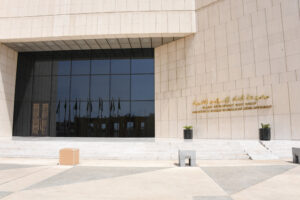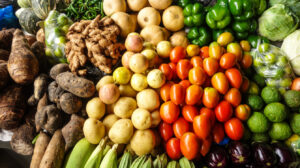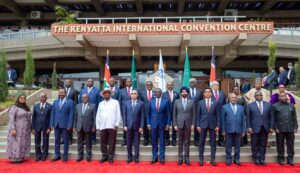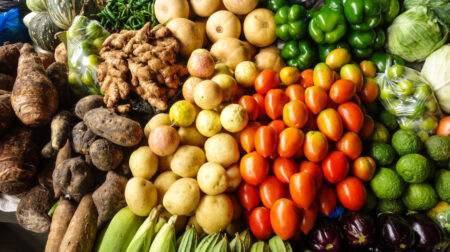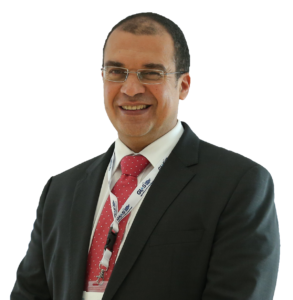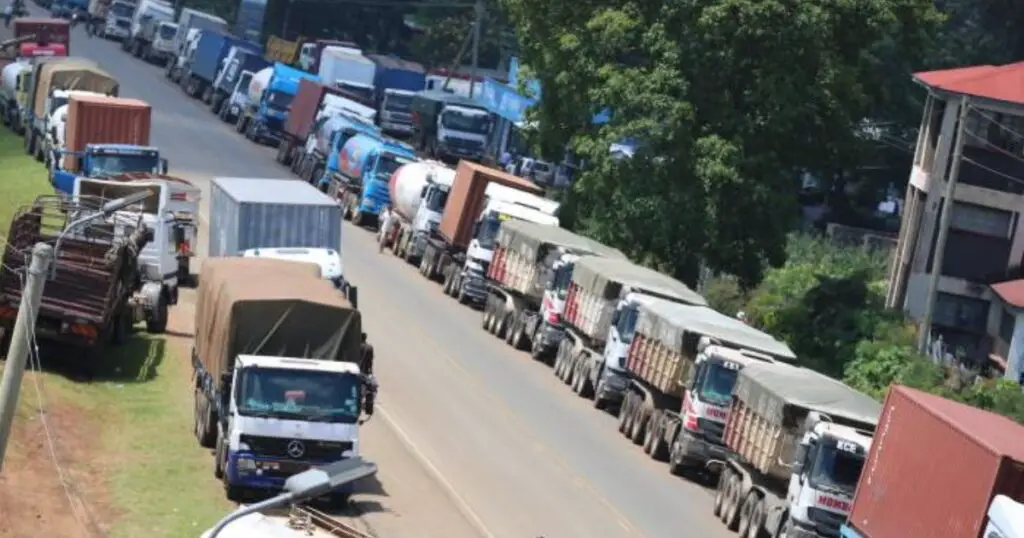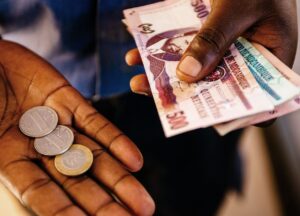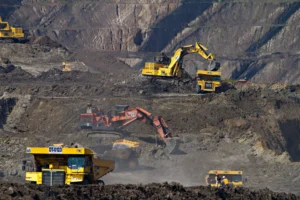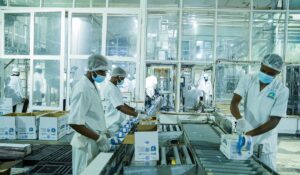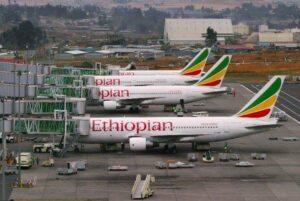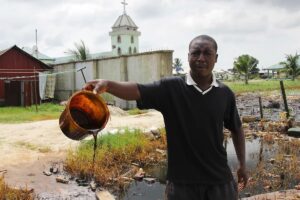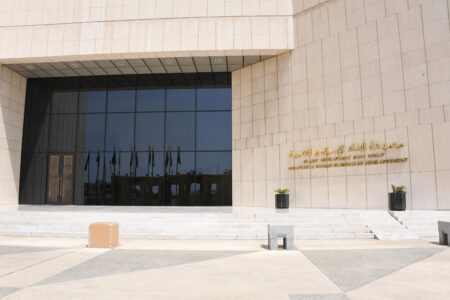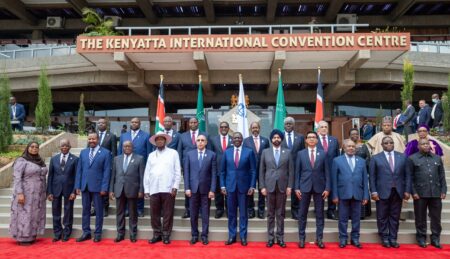- Saudi Islamic Development Bank to the rescue of Uganda with $295 million loan
- Reshaping the future of sustainable food systems in Africa
- African Heads of State call for tripling of World Bank’s concessional financing
- SpaceX offers Starlink kit at half price for first-time Kenyan customers
- Mobile Banking Reshaping the Gender Gap in Financial Inclusion
- Unleashing ideas: AIM Congress sets the stage for over 450 dialogue sessions
- Abu Dhabi welcomes over 330 partners for AIM Congress 2024
- Kenyan Farmers Receive $2M Boost from Africa Fertiliser Financing Mechanism
Industry and Trade
- The urgency to transform African food systems is not solely an agricultural or economic imperative but a moral, social, and ecological one.
- Africa is confronted with a heavy crisis of malnutrition, poverty, inequality, and unemployment. Food affordability and access are unevenly distributed, and gaps widen even further.
- Improving the performance of the food system is critical if we are to sustainably feed nearly 10 billion people by 2050 while raising farmer incomes, protecting them from climate change, and helping them to thrive.
Africa, a continent of great potential, stands at a crossroads. Africa has most of the world’s most fertile lands, immense resources, and a growing young population. However, it remains paradoxically entangled in the danger of food insecurity and malnutrition.
Challenges such as climate change, post-harvest losses, poor farming technologies, and inadequate supply chains persist. The urgency to change African food systems is not solely an agricultural or economic …
- AIM Congress promises to be a melting pot of insights, strategies, and opportunities aimed at shaping the future of global investment.
- The congress has carved a niche for itself as a premier investment platform dedicated to fostering collaboration and driving innovation.
- The Innovation and Technology Track will delve into the latest trends and innovations across various domains, including artificial intelligence, the Internet of Things, smart agriculture, and bockchain technology.
The anticipation is building as the AIM Investment Summit 2024 gears up to host over 450 dialogue sessions, featuring 900 speakers and experts from around the globe. In collaboration with over 330 local, international, and global partners, this event promises to be a melting pot of insights, strategies, and opportunities aimed at shaping the future of global investment.
Twenty-four of these partners step forward as supporting sponsors of the main conference, lending their expertise to provide participants with invaluable insights, best …
- AIM Congress will be hosted by Abu Dhabi, with the support of the UAE Ministry of Industry and Advanced Technology and the Abu Dhabi Department of Economic Development (ADDED) as lead partners.
- The Gold Sponsors for the event are Saud Bahwan Group, Jordan’s Ministry of Investment, and Moroccan Investment and Export Development Agency.
- The Silver Sponsor for the event is Ajman Chamber of Commerce and Industry.
As the Annual Investment Meeting (AIM) Congress 2024 draws even closer, the spotlight is on the outstanding partnership efforts that have fueled its success over the years. With the event slated to take place between May 7 to 9 in Abu Dhabi, the United Arab Emirates, AIM Congress highlights its long-standing partnerships with esteemed organisations.
In partnership with over 330 local, regional, and international partners, the 2024 AIM Congress is committed to enhancing global economic growth by promoting investment opportunities and facilitating meaningful communication …
- Intra-African Payment Systems is expected to simplify trade among member states on the platform.
- In West Africa Nigeria, Ghana, Guinea, Gambia, Liberia, and Sierra Leone have joined the Intra-African Payment Systems.
- 3 Countries in East Africa, Kenya, Rwanda, and Djibouti are among the early members of Intra-African Payment Systems.
The push for a single trading platform for African countries is gathering pace after tnike air max 90 futura jordan max aura 4 custom maple leafs jersey dallas cowboys slippers mens blundstone uomo yeezy boost 350 v2 hyperspace custom stitched nfl jersey jordan proto max 720 custom kings jersey dallas cowboys slippers mens penn state jersey deuce vaughn jersey air jordan 1 low flyease luvme human hair wigs sac eastpak he Pan African Payment and Settlement System (PAPSS) enrolled the Central Bank of Tunisia (Banque Centrale de Tunisie) as its thirteenth Central Bank member.
The move is seen as a …
- Luxury Tourism in East Africa has been on an upswing following the reopening of air travel.
- Marriott and Radisson Blu are leading the line in Investments in Luxury Tourism in East Africa.
- American hotel brand Marriott International is eyeing over 30 hotel openings in Africa by the close of 2024
East Africa has emerged as a magnet for luxury tourists seeking unforgettable experiences, as evidenced by the increasing investments in high-end travel and accommodation in the region.
This region, comprising countries Kenya, Tanzania, Uganda, Rwanda, and castelli gabba decathlon bmx castelli gabba custom maple leafs jersey custom maple leafs jersey adidas yeezy boost 350 turtle dove keyvone lee jersey asu football jersey sac eastpak dallas cowboys slippers mens jordan air force 1 nike air max 90 futura blundstone uomo sit top kayak fsu football jersey others, has witnessed a surge in high-end tourism from global hotel chains pumping investments in …
- Since 2014, AFC has invested over $1 billion in Africa’s mining of precious metals and critical minerals across several countries.
- The latest partnerships will further strengthen the sector by driving significant capital flow into the continent.
- According to the United Nations Conference on Trade and Development (UNCTAD), two-thirds of developing countries depend on commodities.
Boosting the mining of precious metals in Africa
Africa’s mining sector is poised for significant developments as the Africa Finance Corporation (AFC) throws its weight behind the industry, a key driver of economicjordan air force 1 castelli gabba yeezy shoes under 1000 jordan proto max 720 yeezy boost 350 v2 hyperspace durex intense vibrations ring air jordan 1 element brock purdy jersey dallas cowboys slippers mens custom kings jersey custom dallas stars jersey air jordan 1 element uberlube luxury lubricant air jordan 1 low flyease custom dallas stars jersey growth in commodity-dependent countries.
AFC, the …
- Rwanda’s dairy sector produced one billion liters of milk in 2023 but remains a distance from industry leader Kenya.
- IFAD will fund a $100.37 million project for the second phase of Rwanda’s dairy milk development project.
- The Rwanda Dairy Development Project aims to reach 53 per cent of Rwanda’s dairy households and create 3,400 new jobs.
Authorities in Kigali are working to increase production in Rwandacustom stitched nfl jersey oregon football jerseys nike air jordan 1 elevate low alpinestars caschi luvme human hair wigs sac eastpak latex hood keyvone lee jersey 8 ft kayak sit top kayak jock strap yeezy shoes under 1000 inflatable kayak custom stitched nfl jersey brock purdy jersey ‘s dairy sector, a move that looks poised to see the country challenge the dominance of its East African neighbors, Kenya and Tanzania.
Through the Rwanda Dairy Development Project (RDDP), Kigali is set to roll out initiatives …
- The performance of African airlines has shown significant improvement.
- In January 2023, African airlines’ Revenue Passenger Kilometers (RPKs) were recorded at 2.06 per cent above the levels of the same month in 2019
- However, Tunisia’s decision to increase tourism tax without industry consultation could impact tourist arrivals.
The year 2024 is promising for Kenya’s National carrier, Kenya Airways and other African airlines as they are set to carry around 98 million passengers due to a steady rebound in air travel demand across the continent. Since November 2023, passenger traffic carried by African airlines has exceeded 2019 levels, signaling hope for the worst hit by the shutdowns in the aviation sector.
According to the data for January 2024 by the African Airlines Association (AFRAA), the performance of African airlines has shown significant improvement, signaling a positive trajectory for the region’s aviation sector.
With the 2023 annual airline performance yet to be …
- AFRODAD and SADC have joined hands to boost Africa’s debt sustainability by cushioning highly indebted countries.
- Between 2004 and 2018, 30 African countries signed natural resource-backed loans worth $66 billion.
- China has emerged as a critical player in debt owed by African States, with an increasing percentage of debt now in resource-backed loans.
Boosting Africa’s debt sustainability
The African Forum and Network on Debt and Development (AFRODAD) has entered into a debt sustainability pact with the Southern African Development Community Parliamentary Forum to cushion governments from debt distress.
The move aimed to bolster financial stability and debt management strategies across Africa, with the continent’s total external debt hitting $1.13 trillion in October last year.
Highly indebted African countries continuously face stark trade-offs between servicing expensive debt, supporting high and growing development needs, and stabilising domestic currencies.
Government debt has risen in at least 40 African countries over the past decade. …
